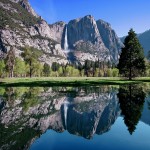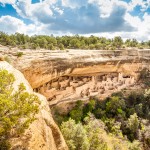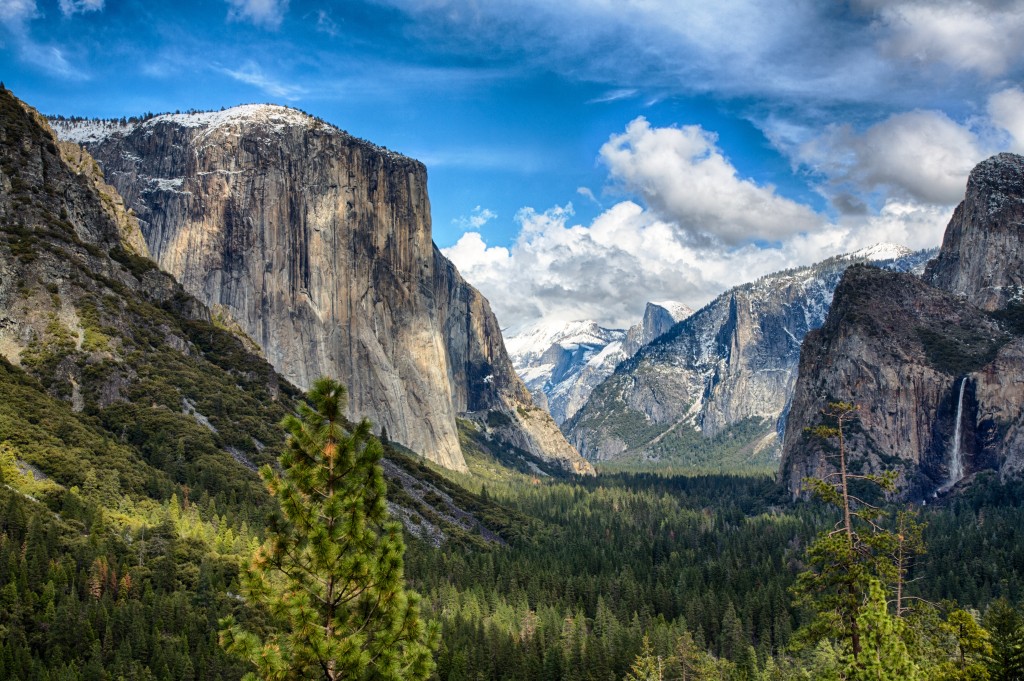Game Wardens are known by various names depending on which state’s Fish and Wildlife agency they work for… In some states they’re called conservation officers or wildlife officers, elsewhere they might be referred to as gamekeepers, and in other states they’re known as wildlife troopers.
These many names reflect the broad set of duties they fulfill as law enforcement officers, protectors of wildlife, and community educators.
As the titles vary, so do some of the job duties of game wardens from state to state and region to region.
In Alaska, for example, Wildlife Troopers are a part of the state Department of Public Safety and simply represent a specialized branch of the state troopers (even to the extent of being able to transfer between regular and wildlife positions). In Pennsylvania, wardens can be Wildlife Conservation Officers with the Game Commission or Waterways Conservation Officers for the Fish and Boat Commission. Both are involved with conservation education and scientific fieldwork on top of their law enforcement duties. And when it comes time to consider career advancement options, the opportunities are with specialized roles in land or waterways management rather than law enforcement roles.
Primary Duties of a Fish and Game Warden
Whether in Alaska or Pennsylvania, whether working for the federal government, a state, county, or tribal agency, all wardens share a basic duty to enforce the laws that are on the books to regulate fishing, hunting, and to protect wildlife and the environment it thrives in.
Frequently, this duty extends beyond the traditional view of law enforcement. Game wardens protect natural resources through a combination of enforcement, education, and conservation programs.
Among other tasks, in many states, wardens:
- Issue fishing and hunting licenses.
- Run hunter education and safety programs.
- Collect samples and scientific data.
- Run or participate in backcountry search and rescue operations.
- Conduct undercover and sting operations around poaching and illegal animal sales.
- Provide backup to other law enforcement agencies in rural areas.
- Conduct inspections of commercial fishing and resource harvesting operations.
- Maintain census counts of wildlife, both harvested and in the wild.
- Monitor and cite industrial polluters.
- Handle issues rooted in human/wildlife conflicts.
They might perform these tasks in the deep woods, on top of mountains, in suburban backyards, in the middle of lakes, or on the open ocean. Game wardens are on the job at all hours, in all seasons, and in every type of weather.
And most of them wouldn’t have it any other way.
Almost everything that a game warden does in the course of their duties will be done outside. At best, a warden can expect to spend a lot of hours doing paperwork on the dash of a truck or boat. More often, it’s a clipboard and a log to sit on.
The opportunity to be out in nature every day and get paid for it is one of the highlights of the job for most game wardens, though. Most are avid outdoorsman who would otherwise be spending their own money to be out snowmobiling, boating, scuba diving, hiking, riding horses or quads, or any of the other various methods used to patrol their assigned territory.
Those territories can be vast and game wardens cover a lot of terrain. Nevada’s Department of Wildlife employs only 35 wardens to cover the state’s 110,000 square miles, for example. Some wardens are responsible for patrol areas of nearly 10,000 square miles.
They’re expected to learn every square mile of it, to know where the illegal road hunters like to operate, to keep track of the problem bears that menace hikers, to learn the trails and watering holes and to sense when the ecosystem gets out of whack.
Law Enforcement
Whatever their other job duties, all game wardens are first and foremost protectors of the environment. All conservation laws are designed to preserve native species and habitat for the benefit of current and future generations. By enforcing those laws and regulations, game wardens discharge a solemn obligation to protect the natural majesty and bounty of America’s vast wilderness areas.
Patrol and Investigations
Exactly how they accomplish that goal can vary a lot based on the nature of the territory they work in and the organization of conservation agencies in their region.
Alaska’s Wildlife Troopers, for example, as part of the State Troopers, work primarily within the overall mission of law enforcement and public safety. They respond to regular police calls and enforce traffic laws as well as fish and wildlife regulations.
Spread thin across sparsely populated terrain, in a state that has no counties (and therefore no sheriff departments for local law enforcement) Wildlife Troopers may represent the only police authority for hundreds of miles around. With few roads, they rely heavily on aircraft and boats, including ocean-going vessels up to 156-feet long.
At the other end of the spectrum, the 60 conservation officers of heavily urbanized New Jersey’s Department of Fish and Wildlife, Bureau of Law Enforcement conduct many of their patrols in vehicles and on foot. Surrounded by local police agencies, they can focus primarily on enforcing hunting and fishing regulations, even though they are also sworn officers with statewide law enforcement authority.
And the special agents and inspectors of the U.S. Fish and Wildlife Service have a still different role, working as investigative experts on big and sometimes international cases involving wildlife trafficking and large-scale environmental pollution cases. They may work more as scientific detectives, shuffling through paperwork in offices and warehouses, than as traditional backcountry game wardens.
Citations and Arrests
The outcome of all these investigations or patrols can lead to fines, citations, or arrests. Wardens may be empowered to impound vehicles or weapons used for illegal harvesting, and to seize fish or game taken illegally. With powers of search and seizure that exceed those of most law enforcement officers, wardens have the ability to determine and intervene in a wide variety of violations while on the job.
Since the targets of these enforcement actions aren’t usually pleased to see a warden coming and are, by the nature of their activities, usually well-armed themselves, game wardens everywhere are trained and equipped at least as well as other police officers. They carry firearms and handcuffs and may wear body armor in accordance with the policy of their agency. They will be trained in accordance with POST (Peace Officer Standards and Training) requirements for their state.
And because they most commonly work alone, sometimes hours from the closest backup, they take the training seriously.
Paperwork and Court Cases
Law enforcement comes with restrictions and obligations, which also mean that game wardens are saddled with their share of paperwork to go with every citation or arrest. Like any other police officer, they are expected to know and follow standards for protecting civil rights and gathering evidence that will hold up in court. And like any other police officer, they will be expected to testify in court and work with prosecutors trying criminals.
Wrangling Wildlife
Game wardens don’t just bring human perpetrators to justice; they also have to keep their four-legged charges on the straight and narrow. When it comes time to arrest a black bear that has been ransacking backpackers’ campsites, though, even the bravest warden knows enough to bring in some backup.
In cases where there is a conflict with humans that can’t be resolved by removing the human, it falls to wardens to remove—or, in the most extreme cases, put down—the animal.
They prefer to trap animals and release them in an area where they aren't a threat to people or property. They may also work with farmers and ranchers to develop preventative measures if wildlife are damaging crops, property, or livestock.
If people have hurt an animal by accident or maliciousness, a game warden may attempt basic treatment or may work with a veterinarian or other specialist to rescue and rehabilitate the injured animal.
Wardens also have input on reintroducing wildlife in their areas of responsibility, such as when the endangered grey wolves were brought back into the Rocky Mountains in the mid-1990s. Game wardens work with biologists and the local community to help prepare and smooth the way for such wildlife engineering.
Wrangling Hunters, Fishermen, and Nature Lovers
Wardens have administrative and organizational control over vast swaths of wilderness, particularly in the American West. One of the primary purposes for keeping those areas natural and pristine is for outdoor recreation, and wardens often end up serving as de facto park rangers when it comes to managing visitors in conservation areas.
Licensing
Wardens may be responsible for issuing hunting and fishing licenses directly for their regions. They are also able to inspect and revoke a violator’s license, as well as write citations.
Education
Education is a major part of the game warden’s job.
Some of this occurs as part of formal programs, such as mandatory hunter safety education courses of the sort offered in Kentucky or Texas. Wardens might teach, supervise training programs, or develop the curriculum for those programs.
But a great deal of their educational work occurs in the field, interacting with individual sportsmen. Not every violation earns a citation. Many wardens use them as teaching opportunities, explaining why the laws are in place and how to remain in compliance.
They have an interpretive role at many wildlife refuges, explaining to visitors the ecology and natural features that make the refuges worth saving.
Wardens also participate in presentations at conferences for fishers and hunters, such as at boat shows. Frequently, the agency will set up a booth staffed by wardens for sportsmen to visit and ask questions informally.
Search and Rescue
Even experienced outdoorsmen can get into trouble in the wilderness, and frequently the closest professional help will be a game warden. Wardens respond to search and rescue calls both within their own sectors and to provide assistance to other agencies in the area.
Although many wardens have special training in medical and rescue services, it’s a dangerous part of the job; in 2007, a Texas game warden drowned while attempting to recover a 16-year-old victim from a flooding river.
Research and Environmental Protection
Game wardens have always had a front-row perspective on the importance of ecosystem management and the relationship between species. As stewards of their environment, wardens work closely with fish and game biologists and state regulators to monitor field conditions and species populations. And as law enforcement personnel, wardens are responsible for enforcing anti-pollution laws.
Data Collection
Due to their expert knowledge of their assigned territory, game wardens are often relied upon to record many of the initial findings and observations for ecological studies. A game warden may assist wildlife biologists with data collection and analysis to better understand how a local habitat is changing and how, if at all, people have impacted that change.
Many conservation and environmental groups work with game wardens to document wildlife counts, keep records of trends in wildlife travel, measure pollution or investigate problems with fisheries. Data collected by wardens provides valuable input for regulators who determine hunting season dates and bag limits. It also goes into the calculations of environmental planners looking at larger regulatory issues like pollution laws or land use rights.











